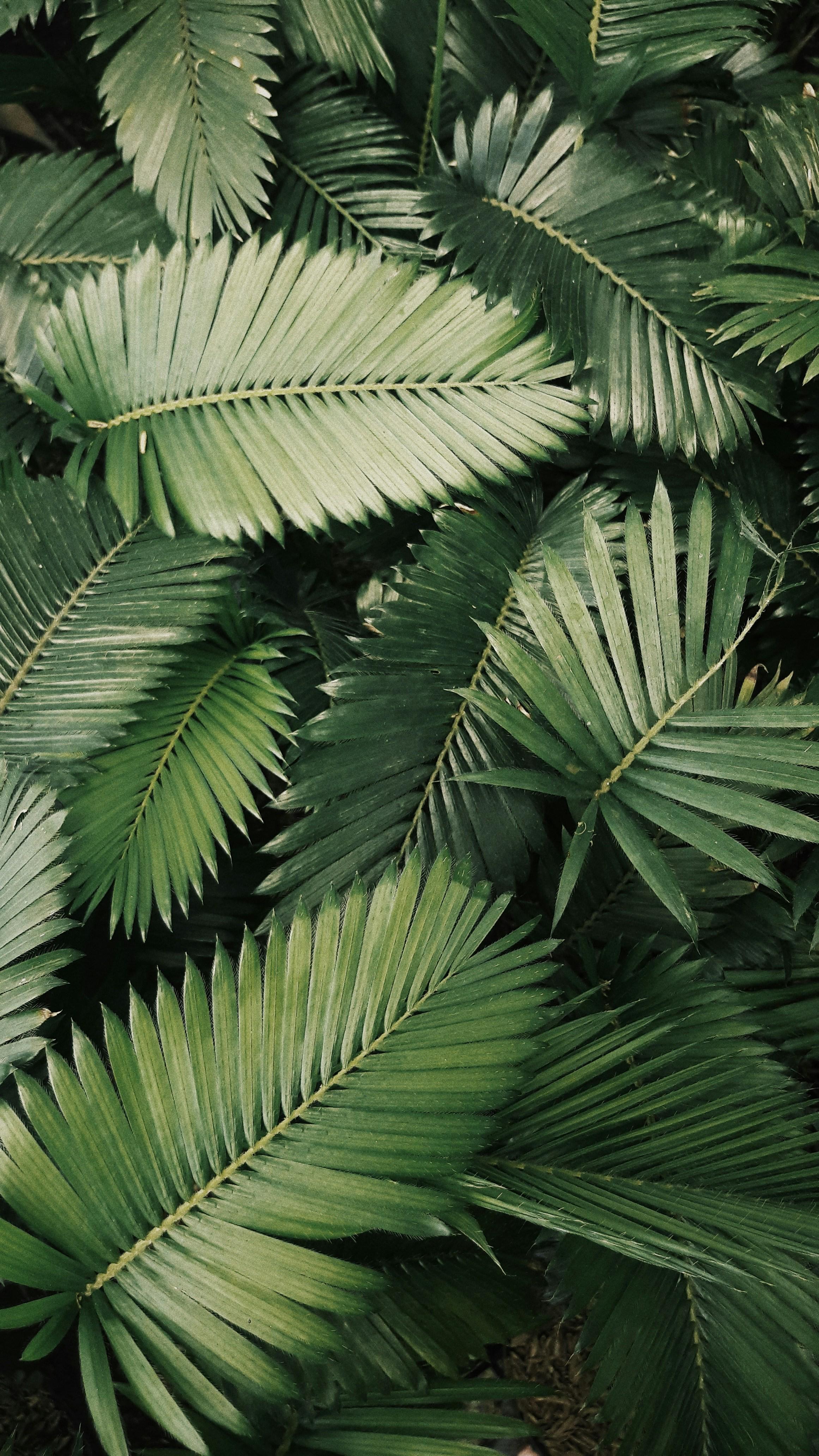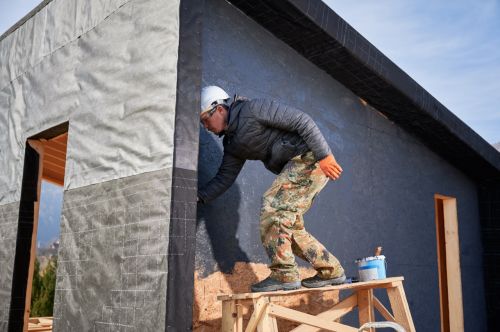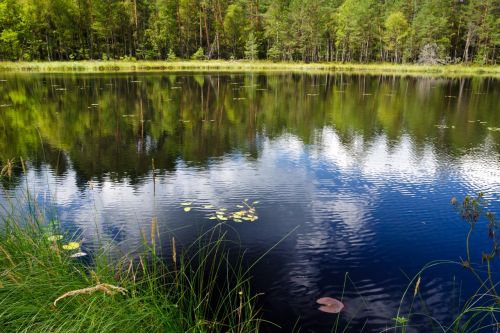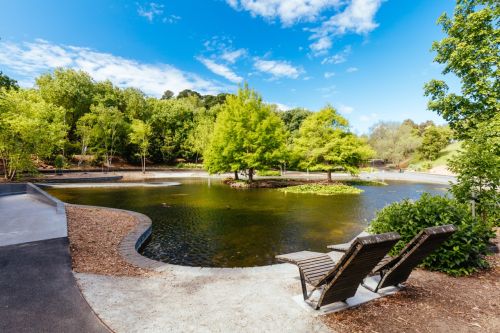Natural-looking, sustainable, and eco-friendly water features have become an indispensable part of garden landscape projects in recent years. In this context, biological ponds stand out as systems that combine aesthetics and functionality. With the biological pond construction services we offer at Cem Botanik, we provide solutions that both protect nature and enrich your living spaces.

A biological pond is an eco-friendly and sustainable water system where only natural methods are used to clean and balance the water. In such ponds, instead of chemical filtration, the natural water cycle is maintained with plants, microorganisms, and biological filtration techniques. Providing both aesthetic and ecological benefits, biological ponds have become increasingly preferred in landscape design in recent years.
Unlike traditional ornamental pools, a living ecosystem is established in biological ponds. In this system, aquatic plants, bacteria, gravel, and special layers work together to filter the water, balance the oxygen level, and prevent algae formation. As a result, a natural, clear, and healthy water environment is achieved.
Contains No Chemicals: No chlorine, algaecide, or harmful cleaning products are used.
Hosts a Living Ecosystem: Provides a natural habitat for living beings like fish, aquatic plants, and microorganisms.
Usable in All Seasons: Water does not need to be drained during cold weather; the pond maintains its natural balance.
Low Maintenance Cost: Thanks to natural filtration, the need for regular maintenance is reduced.
Aesthetic and Functional: The surroundings are enriched with natural stones, cascades, waterfalls, and plants.
Biological ponds are a striking design element that is both environmentally friendly and supportive of natural life in sustainable landscape practices. Thanks to the biological balance created inside the pond, the water remains clean at all times, creating a suitable environment for fish, birds, and insects. Moreover, biological ponds create a microclimate effect that positively contributes to the area's humidity, temperature, and oxygen balance.
Biological pond systems, which can be implemented in a wide range of locations from villas to hotels, public spaces to boutique businesses, are one of the main elements of nature-friendly and long-lasting landscape designs.
A biological pond is a man-made water area in which natural organisms, plants, and biological filtration systems are used instead of chemical substances to filter and clean the water. Unlike classical ornamental pools, biological ponds work in full harmony with nature and operate according to ecosystem rules.
Filtration in these pond systems is achieved with plants, microorganisms, and specially layered filters. In this way, the continuously circulated water becomes clean, healthy, and suitable for living life. The construction of a biological pond is one of the top choices in landscape projects aiming for an aesthetic appearance without harming nature.
Artificial ponds generally try to keep the water clean with chlorine or other chemicals, whereas in biological ponds, this process is carried out entirely through natural methods. Moreover, while artificial ponds require maintenance during seasonal transitions, biological ponds can be used in all seasons.
In artificial ponds, water is usually drained seasonally; in biological ponds, this is not necessary.
Artificial systems have higher energy and maintenance costs.
Biological systems create a more harmonious and natural atmosphere visually.
Biological pond applications begin with the correct analysis of the area. At Cem Botanik, the process we follow includes the following steps:
Site Survey and Area Analysis: Evaluation of shading, water needs, soil structure, and slope of the land.
Design Process: Planning is done according to the size of the area, client expectations, and ecosystem requirements.
Excavation and Sealing: The area is excavated appropriately. Special biological pond membranes are laid to prevent leakage.
Filtration System Installation: Plant-based and mechanical filtration systems are integrated. Biological filters are placed.
Planting and Aesthetic Elements: The pond perimeter is adorned with suitable aquatic plants. Visual elements such as waterfalls, cascades, and stone paving are added.
Water Filling and Balancing: The pond is filled with water, the system is activated, and the ecosystem balance is established within a few weeks.
All materials used in these stages are selected to be environmentally friendly and long-lasting.
Biological pond systems offer many advantages not only aesthetically but also in terms of environmental impact and usability. Here are the main advantages of biological ponds:
The absence of chemicals that could harm nature allows for the creation of a natural water ecosystem.
Since mechanical drainage is not required, hygiene is maintained without water loss.
A clean, harmless, and hygienic water environment is constantly maintained.
Unlike conventional pools, they are not drained due to freezing and maintain their visual appeal in every season.
Since the purification process is entirely carried out with organic materials, the operating cost is economical.
They can be constructed in any size and shape according to land form and project design.
As they are harmless to the environment and human health, they ease the job of businesses and local governments.
With elements that add movement to water such as cascades, waterfalls, and fountains, and through the plant or animal populations that create visual appeal, they become attractive spaces.
Biological pond systems are not only preferred in private villas but in many different areas of use:
Villa Gardens and Detached Houses: Private landscaped areas intertwined with nature
Residential Complexes’ Inner Gardens: Visual richness and natural life in communal spaces
Hotels and Resorts: Aesthetic water features that increase guest satisfaction
Municipal Parks and Public Areas: Natural areas that create ecological awareness
Restaurants and Cafés: Gardens offering nature-connection experiences for customers
Biological ponds make a difference in terms of both landscape design and environmental contribution.
At Cem Botanik, we have implemented many biological pond projects of various scales to date. Each of them is a sustainable and visually rich system designed according to the ecological needs of the area.
In our projects:
Planting is done compatible with local flora and fauna.
Recyclable materials are used.
Maximum efficiency is aimed with minimum maintenance requirements.
Environmental sensitivity is prioritized with energy-saving systems.
In every project, we prioritize customer satisfaction and proceed with the design process through detailed visuals and approved drawings.
Some examples among our projects:
Bodrum Villa Garden: A water ecosystem with stone flooring, fountains, and lotus flowers
Istanbul Residential Project: A large biological pond with water lilies in a communal area
Sapanca Boutique Hotel: A natural cascading pond system integrated with bird and butterfly populations
Cappadocia Natural Area Project: A biological pond surrounded by volcanic stones, built for environmental education purposes
Each of them is a reflection of architectural respect for nature and a landscaping approach that contributes to the environment.
Biological pond systems are not just water features; they bring vitality, naturalness, and beauty to your living spaces. Biological pond applications carried out by Cem Botanik’s professional teams offer long-lasting, eco-friendly, and sustainable solutions. For the most suitable biological pond design and pricing for your space, feel free to contact us.
A pond is a man-made or natural water body designed for aesthetic, ecological, or recreational purposes. It can range in size and function, from ornamental garden ponds to larger water systems.
A biological pond is an eco-friendly water system where water is cleaned and maintained using natural filtration methods such as aquatic plants, microorganisms, and biofilters — without the use of chemicals.
The cost of a biological pond can vary significantly depending on factors such as size, design complexity, materials used, plant species, and filtration system. For accurate pricing, a site inspection and customized offer are usually required.
Biological ponds are constructed by first analyzing the landscape, then excavating the area, installing waterproof membranes, placing natural filtration layers, and adding appropriate aquatic plants and decorative elements like waterfalls or rocks.
Common plants used in biological ponds include water lilies, lotuses, cattails, reeds, water hyacinths, and oxygenating plants like hornwort and anacharis, which help filter the water and balance the ecosystem.
Yes, biological ponds can be designed for small gardens, courtyards, or even terraces. With proper planning and the right choice of compact plant species and filtration components, they can fit a variety of limited spaces.





